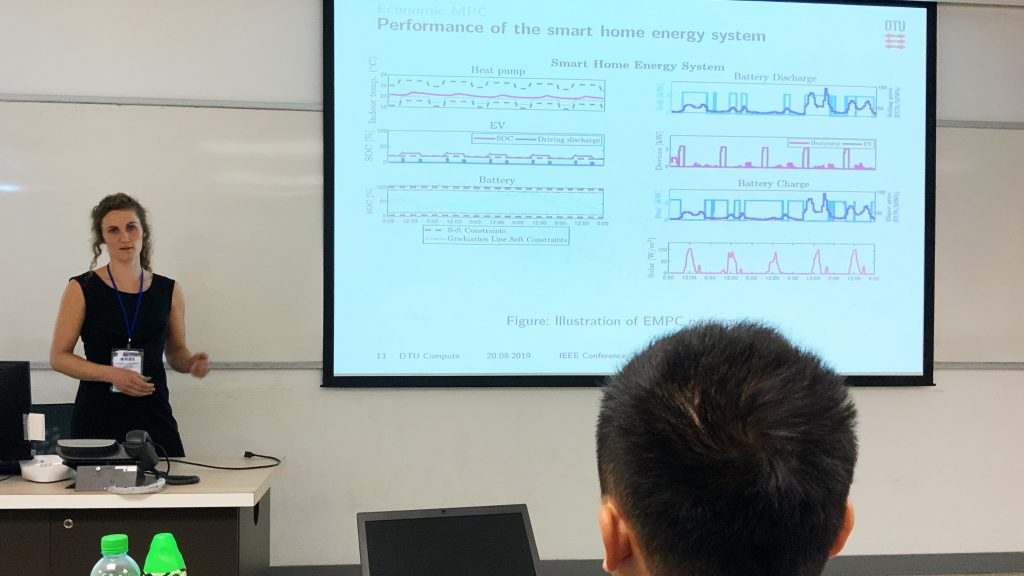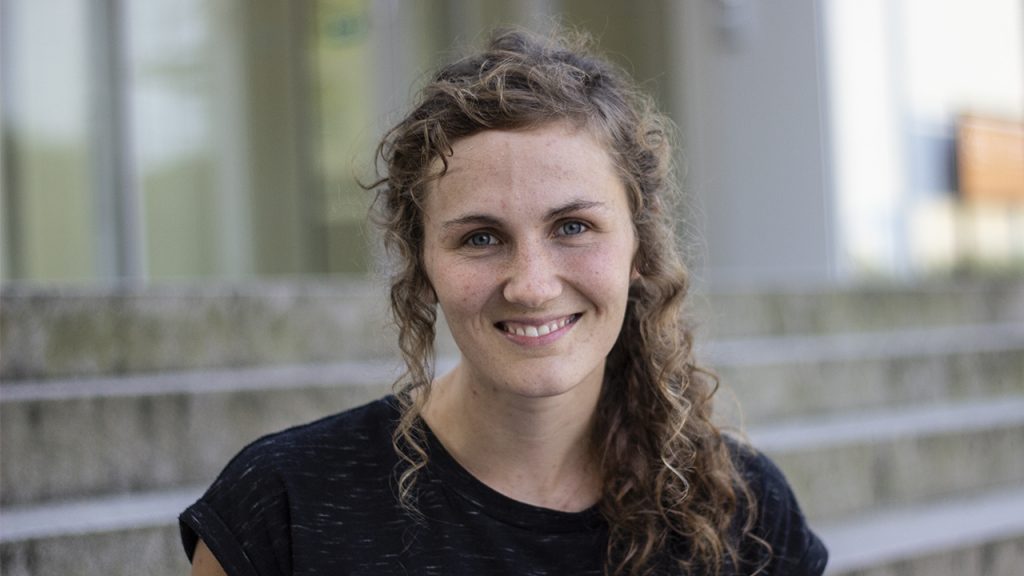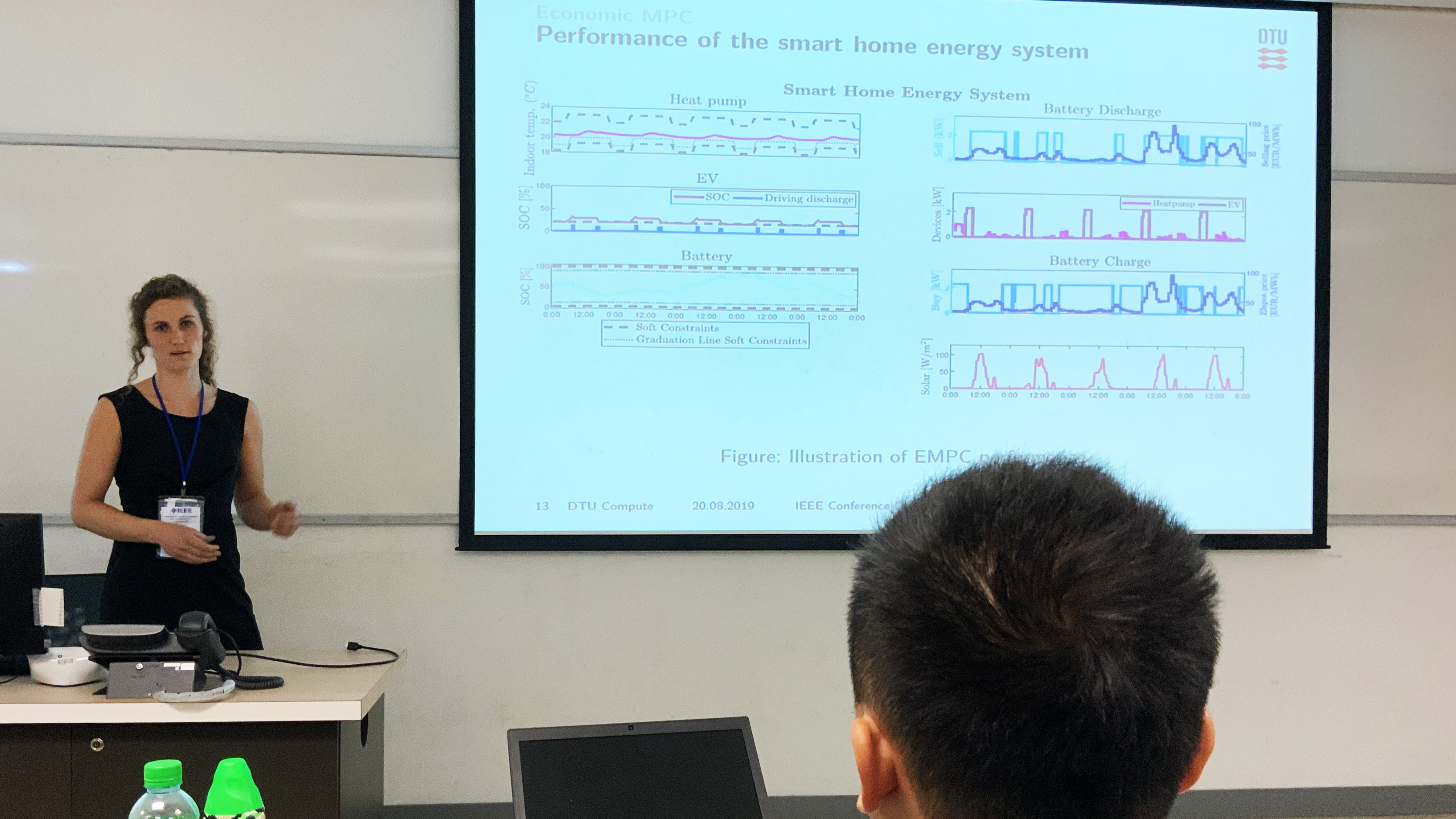These weeks, Hong Kong is massive in the media due to major demonstrations and unrest in the city, but life in the city continues alongside. Last week, PhD student Hjørdis Amanda Schlüter and Professor John Bagterp, both affiliated with CITIES and the Smart Cities Accelerator at DTU Compute, attended the IEEE CCTA 2019 (Conference on Control Technology and Applications) in Hong Kong.
Here, on August 20, 2019 Hjørdis Amanda Schlüter presented a new model, EMPC, to manage the energy system in smart homes (Economic Model Predictive Control for Energy Systems in Smart Homes).
Here, the energy system basically consists of a stationary battery, photovoltaic solar cells on the roof, a heat pump for heating and an electric car where the battery has to be charged.
Using weather forecasts, thermal comfort and driving profiles, EMPC coordinates this energy system and its interaction with the external energy system by buying and selling electricity at prices announced in advance.

DTU Compute is not the first to present such a model. It has been done before, for example, by Stephen Boyd (Department of Electrical Engineering, Stanford University) in the article “Dynamic energy management with scenario-based robust MPC”. There he and his people focus on the software they have created to control a smart home energy system. ‘
“Our focus is on developing the simplest model we could think of. The model is so simple that it is easy to set up for others who do not know so much about the subject,” says Hjørdis Amanda Schlüter.
The conference was quite small and some of the participants did not show up due to the unrest in Hong Kong. Nevertheless, about 20 researchers and firms found their way to Hjørdis Amanda Schlüter’s presentation, and she got a lot of questions about the model.
The research continues with two graduate students who will be writing a thesis at John Bagterp this semester. They have to reproduce Hjørdis Amanda Schlüter’s results and then extend the model to a whole street instead of a single house.
Click here to see the PP presentation


